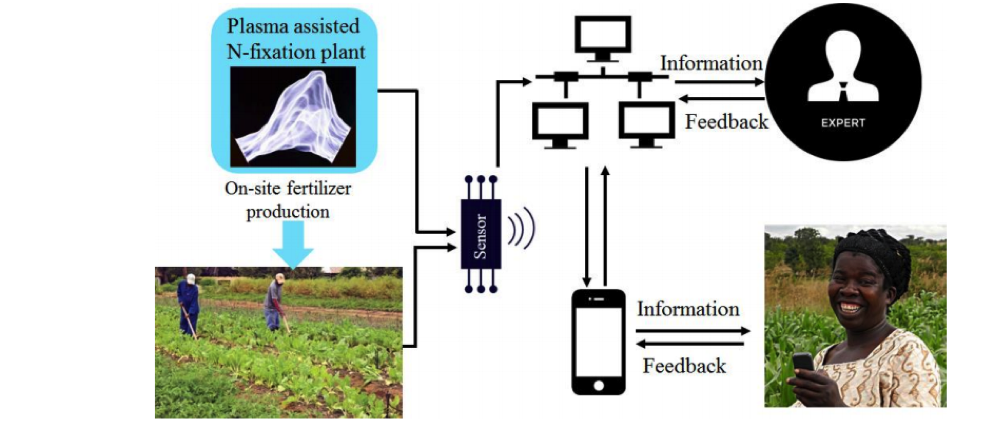


 Project acronym
Project acronym
Project AFRICA
Keywords
sustainable agriculture, cost-affordable fertilizers, green chemistry, renewable energy, ICT
Research and innovation foci selection
Duration of the project:
Funder
European Union. LEAP-AGRI-146
Countries
Principal Investigator, Uganda:
Dr. Stella Kabiri-Marial
Abstracts for a broader audience
This project is to develop a green-energy driven technology solution to support the on-site fertilizer production in Africa, providing cost-affordable, green-made fertilizers to local small-scale farms. This will contribute to the development of sustainable agriculture and food systems in Africa. The proposed research is based on nitrogen fixation with non-thermal plasma technology. Using nothing else than air or N2/O2 (air with additional oxygen) as raw material, NOx (mixture of NO and NO2) is produced through the chemical reaction in plasma which is generated from a variety of renewable energy sources. This research will enable the production of liquid fertilizers on demand to be applied directly to the soil, dissolved into irrigation water for foliar application. Test plants will be built in Uganda, South Africa and Ghana followed by a practical study of the soil and crops’ conditions. The use of sensor technology attached to mobile devices will be explored to monitoring the fertilizer production, and enhance the quality of soil and food. It is the medium to allow relegation of process monitoring to central computer systems (Chemical Internet of Things) to achieve maximum results. Even more, it is meant to provide rural farmers and more specifically bridging the gap of providing female rural farmers with the necessary knowledge and insights. This opens door to remote control of the Fertilizer production by the African farmer as well as to machine-to-machine communication for mutual optimization and to contact experts (e.g. in Europe) for advice/interaction in case of non-proper function. An environmental, economic and social assessment will be provided to achieve a comprehensive understanding of the sustainability impact brought by the new technology and processes. The success of this project will open a new window of opportunity in the development of sustainable agriculture in Africa as well as other regions in the world.